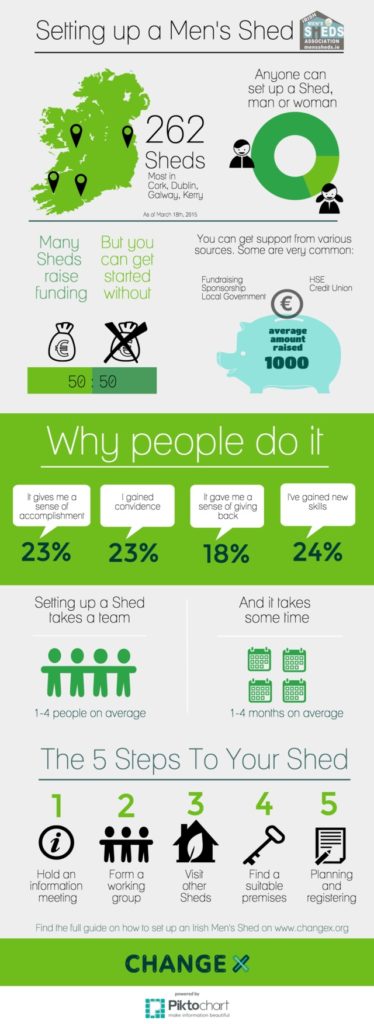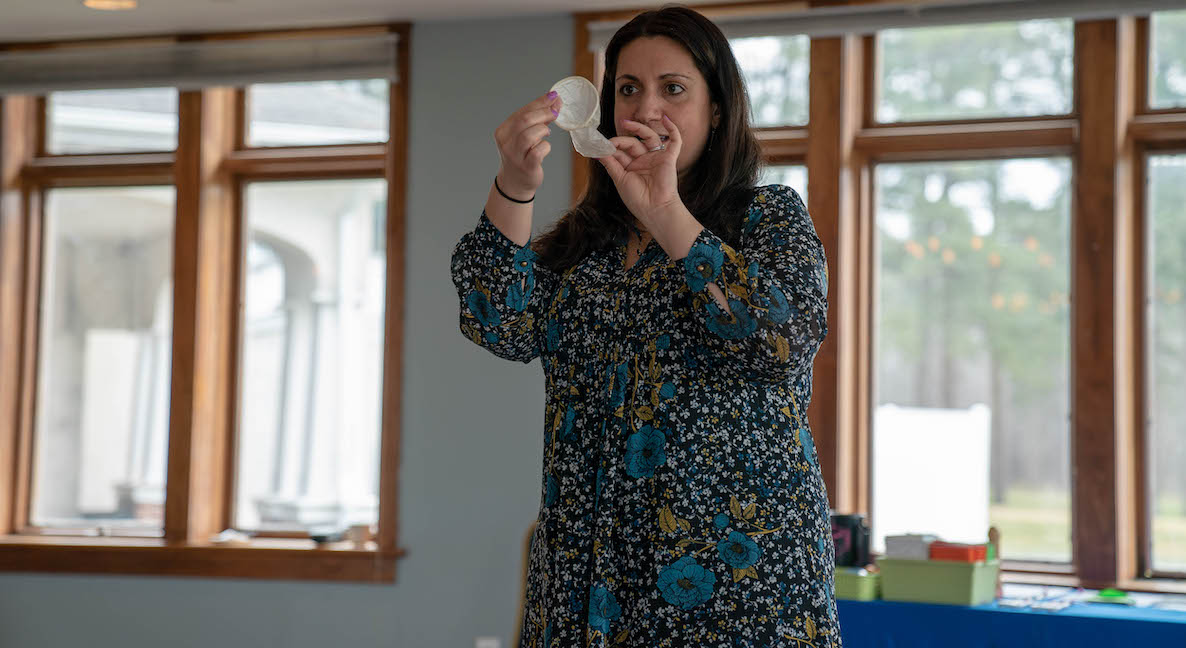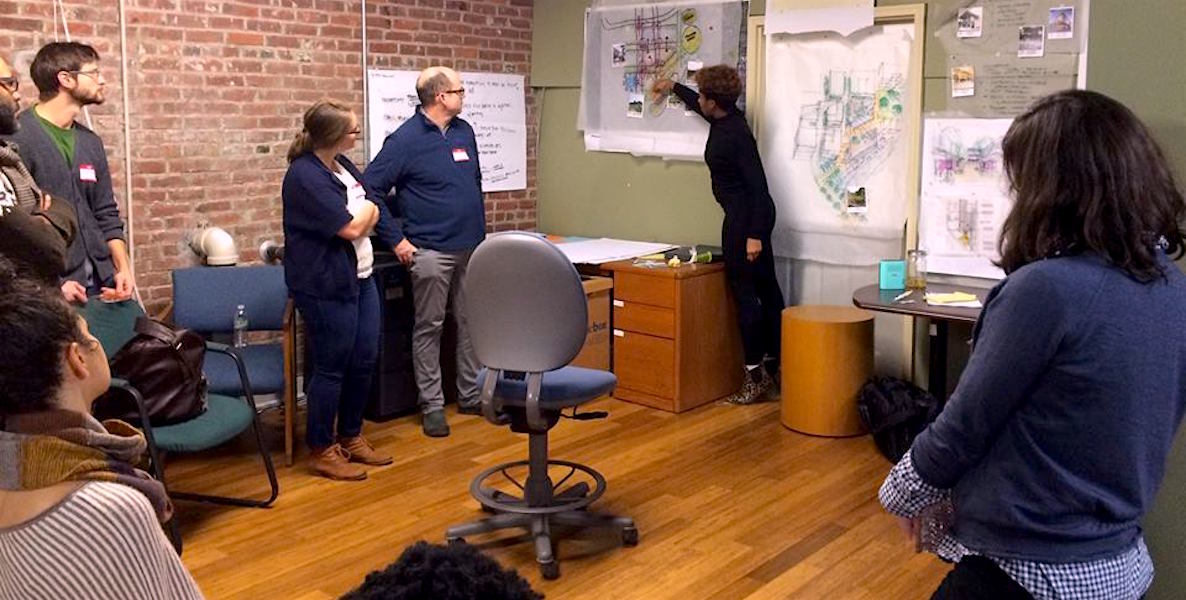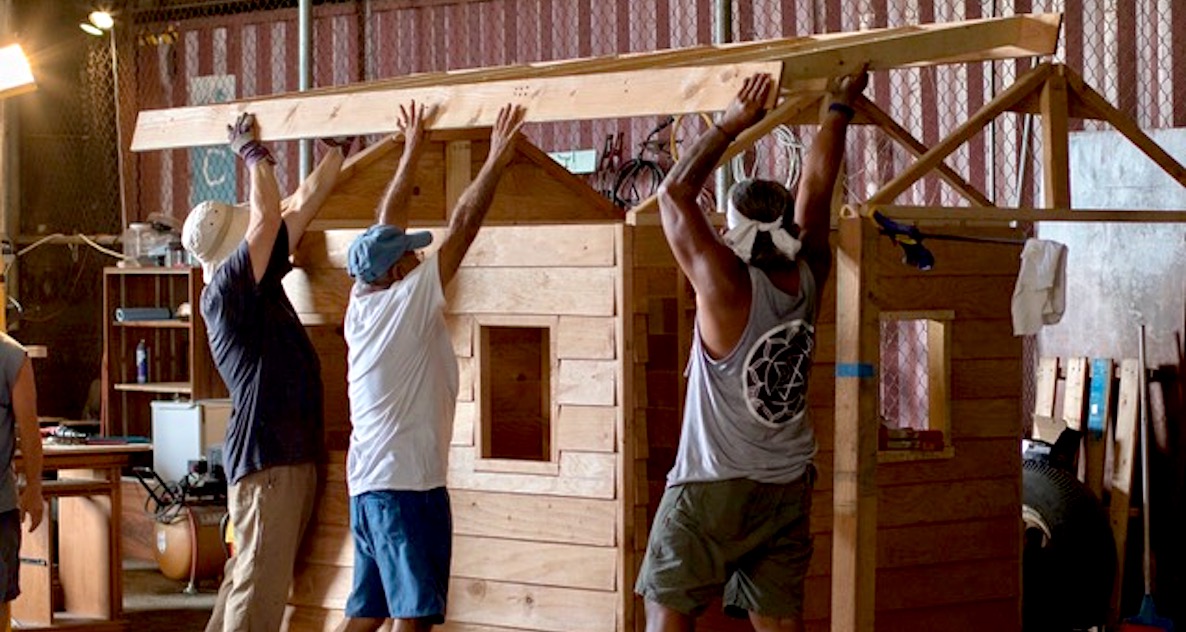A few years ago, Glenn Sears, now 84 and a retired civil engineer, moved from a 5000-square-foot home in Colorado to a condominium on the 35th floor in Hawaii. He quickly realized he no longer had the space to make and fix things, so he started going to senior centers to see if they could help him cure his newfound boredom.
“They’d say, ‘What would you like to do?’ And I would say, ‘I’d kind of like to build a bookcase,’” Sears recalls. “They’d look at me like I was crazy.” Instead, they offered him elementary Japanese or line dancing. “I just figured I’d have to give up making things and become more sedentary and it just seemed like that was the way it was going to go.”
It turns out that Sears wasn’t the only older man struggling to fill his time. Phil Johnson, now 70, was living in Minnesota, recently retired from a career in software development and looking online for activities for older men. He thought often of his own father, who had struggled with getting out of the house for the last 20 years of his life. Between 2015 and 2016, both Johnson and Sears came across Men’s Sheds, an initially Australian organization that was making its way across the globe, in their hunt for something to do.
“It sounded kind of like Boy Scouts for old guys,” explains Johnson. “There weren’t merit badges to earn but there was camaraderie at a local level that really appealed to me.”
“Senior guys have so much life experience, so much professional experience,” says Winston. “But they feel like an old horse thrown out to pasture. They lose their drive.” The change once they start coming to the shed, he says, is “almost magical.”
Men’s Sheds are gathering spaces in which men get together to work on projects shoulder to shoulder, from building furniture to volunteering at community events. They are designed to combat loneliness among retired men by providing them with activities they can do, as a group, while connecting with each other. Research shows that depression increases along with age, for many of the reasons you may assume: loneliness, poor health, and the loss of family members, friends, and spouses who pass away.
This process, however, is not inevitable. Research has also proven that as sociability increases among elderly people, loneliness decreases; as loneliness decreases, depressive symptoms decrease. Given that white men 85 and older commit suicide at more than four times the rate of the general population in the United States, building a formal infrastructure through which elderly men can meet new friends can literally save lives.
![]()
And Men’s Sheds impact more than just mental health; they seem to be improving participants’ physical health as well. Men display fewer health-seeking behaviors than women do, for a variety of reasons often related to socialization and masculinity, but studies of Men’s Sheds across the globe have found that men talk actively about their health concerns while they’re there—something Winston calls “health by stealth.” Many sheds schedule visits from health workers to talk about staying physically active or common diseases like diabetes, and some sheds in Australia and Ireland even offer health screenings to members.
This is one of the reasons Men’s Sheds don’t recruit women to join them, though they, as well as younger men, are welcome to come by if they’d like. “It’s difficult for guys to discuss their prostate problems if someone in the group is a woman,” explains Sears.
In Hawaii, Sears got to work starting his own fledgling Men’s Shed at the same time as Johnson was considering how to make it happen in Minnesota. The idea, they learned, was widespread—more than 1,000 Men’s Sheds existed worldwide, but none had yet been launched in the US. In 2016 they were introduced to Mark Winston, now in his early 60s, who had recently launched his own Men’s Shed in British Columbia, and the three men decided to officially bring the concept to the United States.
Winston, who lived between British Columbia and Wyoming and worked in business development, established the national nonprofit in 2017 and asked Sears and Johnson to join the board of directors. Sears launched the first shed in Honolulu, and Johnson the second in Hopkins, Minnesota. Today, 14 Men’s Sheds dot the United States, though they are concentrated in the Midwest, and nine more are in development. Hours and membership fees vary, with some Sheds charging no dues at all and some charging up to $85 a year, depending on the scope of their space and the activities offered.
“We do focus groups around the city, and a consistent thing that we hear from people is ‘I don’t know how to connect, I don’t where to go, who do I talk to?’” explains Hernández Vélez.
While US Men’s Sheds share a focus on reducing isolation and idleness among elderly men, they can have varying approaches to doing this. The Honolulu Men’s Shed, which now boasts more than 100 members, operates like a workshop. The 6,000-square foot space is open on Wednesdays and Saturdays—though it’s available to members any time, as long as two people are present and someone is trained in first aid and CPR—for members to come work on projects.
The workshop is stocked full of power tools that members can use, something that Sears says were surprisingly easy to come by when they were getting started. “We put articles on Craigslist looking for tools, and we were inundated with woodworking tools. We got so many we had to ask to stop,” explains Sears. Apparently, the Shed was solving an additional unexpected problem for elderly people: “You can’t imagine how many widows there are out there who don’t know what to do with their husband’s tools.”
The men have built a playhouse for a preschool, built picnic tables for elementary schools, and regularly repair old canoes that are abandoned throughout the island, which they then rent out to local hotels and resorts to put on display.
![]()
The Hopkins Men’s Shed, with 37 members, focuses more on community service, and operates out of a senior center rather than its own physical space. They keep regular communication with the city’s maintenance department, and men sign up for small jobs, like scooping ice cream at the summer festival or putting plastic bags over the fire hydrants in the city to keep them clean and workable through the winter.
Bob Nelson, 72 and a member of the Hopkins Men’s Shed, participates frequently in projects ranging from fence painting to garden planting. What they do, though, isn’t really the point. That’s why, Johnson says, putting together a piece of IKEA furniture is the perfect Men’s Shed activity. “One guy gets the wrench, a few hold parts, four fight over the instructions with no words, and the rest of the guys stand around and drink coffee,” he explains. “The activity isn’t the purpose; the purpose is for guys to get together and stand shoulder to shoulder rather than face to face. It’s much more comfortable for guys to have something to do.”
Research conducted in Philadelphia has found that simply being socially connected to other people boosts both physical and mental health outcomes for older adults. “The trust issue is very big,” explains Allen Glickman, Director of Research and Evaluation at the Philadelphia Corporation for the Aging. “Men’s Sheds seem to be the kind of thing that not only gives them opportunities to do things, but also to develop those trusting relationships” necessary for internalizing health information.
Philadelphia, like most cities, has its fair share of senior centers and groups. According to Lydia Hernández Vélez, Deputy Managing Director for Aging at the Mayor’s Commission for Aging, West Philadelphia even has a group of seniors who regularly help people repair their homes.
“It brings 100 old guys out of the house and makes them part of a community again. We have a lot of fun. We work together, we laugh together, we joke together,” says Sears. “It’s something that is missing in the lives of older men.”
Despite this, the challenge of isolation among this population persists in the city. “We do focus groups around the city, and a consistent thing that we hear from people is ‘I don’t know how to connect, I don’t where to go, who do I talk to?’” explains Hernández Vélez. “That’s a challenge for many people, they have this feeling that they want to do something, but how do they actually connect with some place where they can bring all of that knowledge and energy and expertise.”
In addition, says Hernández Vélez, an expansion in such networks mean more eyes are on a particularly vulnerable population. “If someone has been very diligent in attending the meetings, and then no one’s seen them in two or three weeks, they think, ‘Who’s talked to her, has anyone seen her? No, something’s wrong.’” People who otherwise would not have known each other become safety nets for each other.
This is a particular challenge for Philadelphia’s rapidly growing immigrant community, where, according to Hernández Vélez, it becomes an issue of “literally, do we speak the same language?” According to Glickman, as of 2017 14 percent of Philadelphians over the age of 60 did not speak fluent English.
Thus far all US Men’s Sheds are English-oriented places, but Winston says they’d love to help get a Men’s Shed hosted in a language other than English off the ground. The group offers resources and advice on starting one: Someone interested needs to first find two or three other guys to form a steering committee, then hold an information meeting—he recommends advertising on Craigslist—to spread awareness and recruit members.
From there, the process largely depends on whether the group wants to work out of an already existing senior center or start a stand-alone organization. No matter the approach, Winston says, the board’s role is to support men in getting it off the ground, and anyone should feel free to contact them with questions.
Ultimately, a Men’s Shed anywhere is a win for Sears, Winston, and Johnson. “Senior guys have so much life experience, so much professional experience,” says Winston. “But they feel like an old horse thrown out to pasture. They lose their drive.” The change once they start coming to the shed, he says, is “almost magical.”
“It brings 100 old guys out of the house and makes them part of a community again. We have a lot of fun. We work together, we laugh together, we joke together,” says Sears. “It’s something that is missing in the lives of older men.”
Photo via Honolulu Men's Shed







